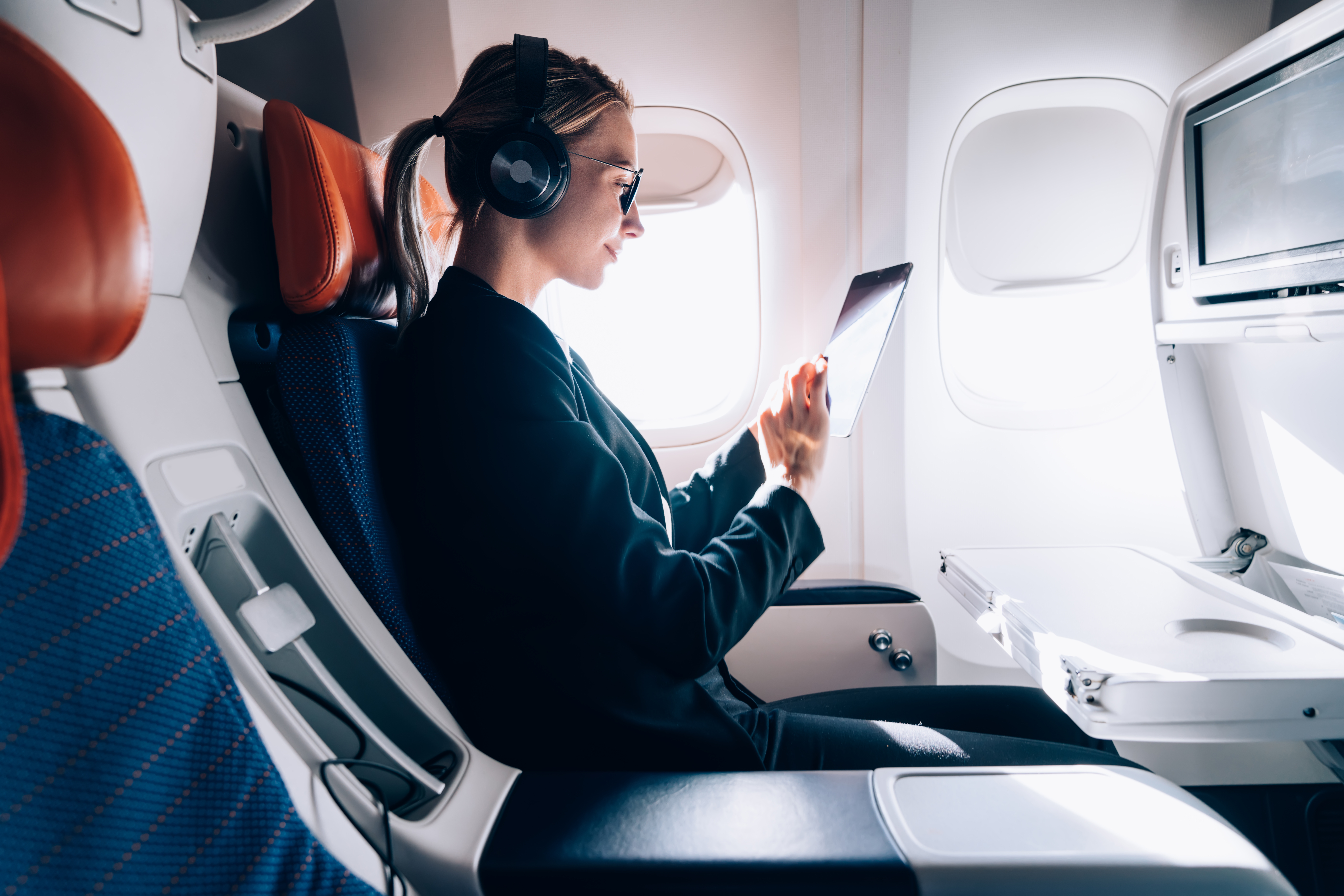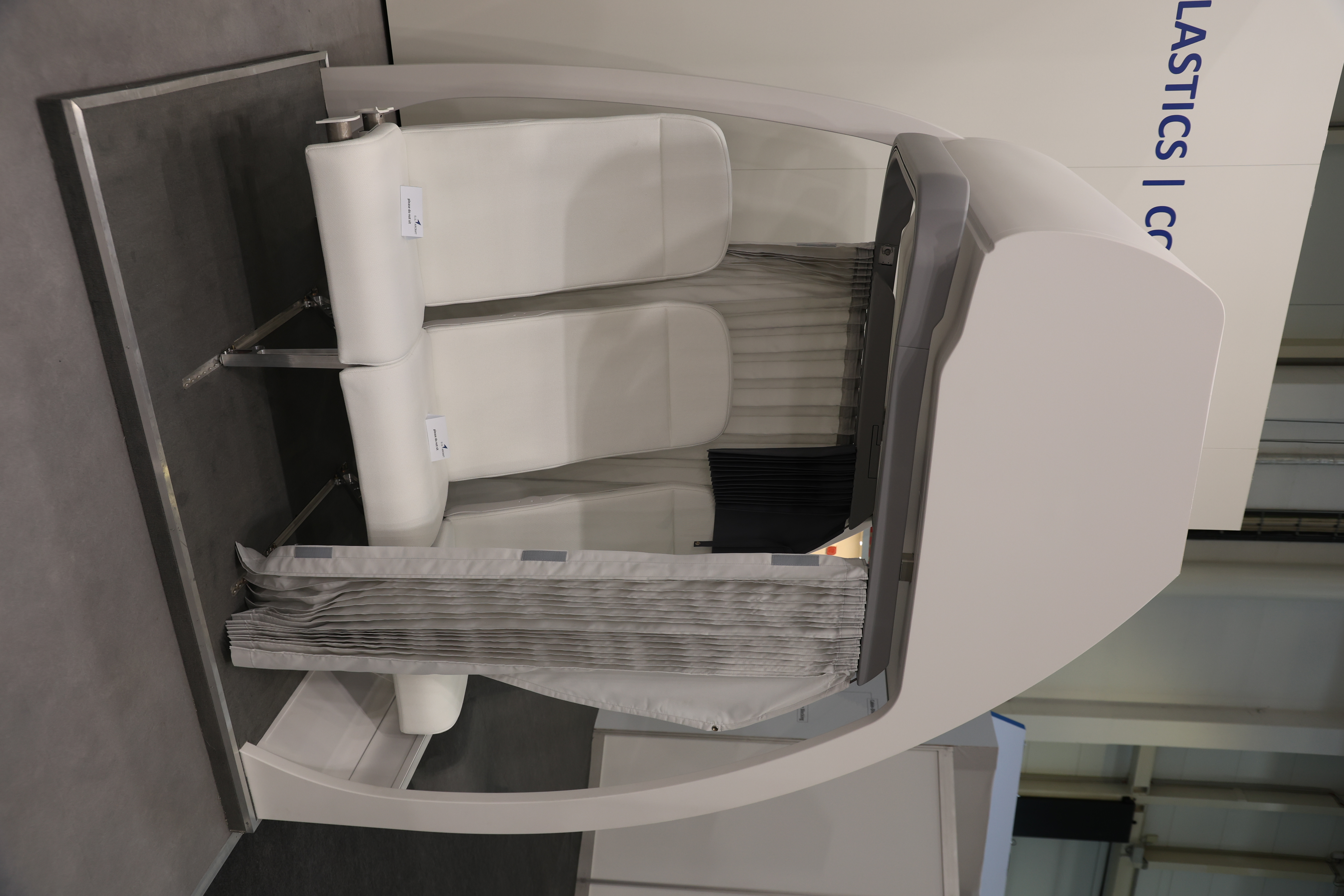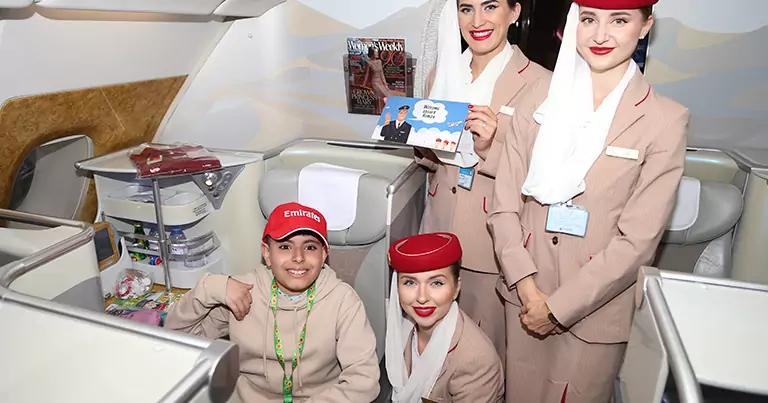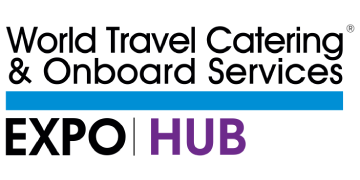
Air travel can, at times, be challenging for everyone. But it presents unique barriers for neurodivergent passengers ranging from accessibility to comfort. Airlines must offer accessible facilities and services to prioritise not only passengers’ wellbeing, but passenger inclusion.
For example, in 2022, out of 3.45 million passengers seeking assistance at UK airports, 88% were less mobile, primarily elderly, requiring basic aid. However, airlines are starting to prioritise the importance of inclusive travel and are implementing measures, such as inflight care, to facilitate travel for all passengers, including those with neurodiverse requirements.
Although the term “neurodiversity” refers to the diversity of all individuals, it is frequently used in relation to autism spectrum disorder (ASD) and other neurological or developmental disorders such as learning impairments or ADHD.
The challenges faced by neurodivergent passengers
Challenges may arise during travel for individuals with disabilities, including less visible or invisible conditions ranging from deafness or autism, especially when these passengers and their requirements are not considered. Despite progress made by airlines in this area, neurodivergent passengers still face worries when planning travel.
Onboard
Neurodivergent passengers may encounter challenges even before the journey, which can include:
- Complex check-in procedures, ticketing systems, confusing mobile apps, and inconsistent accessibility of information can cause information overload
- Intense lighting, loud sounds, powerful odours, and restricted personal space in airports may be overpowering for individuals with sensory sensitivities
Inflight
Inflight dissatisfaction among neuro-diverse passengers often stems from the following:
- Restricted travel catering menus or a lack of neurodiversity-friendly choices
- Issues with inflight care devices
- Issues arising from the need to communication their disabilities
- Unexpected events and sudden changes inflight
Airlines’ opportunities for assistance
Navigating the landscape of travel catering and onboard services opens significant opportunities for airlines to create a more inclusive and supportive environment for neurodivergent passengers.
Within the realm of inflight services, there exists vast potential to offer tailored assistance, ensuring a comfortable and accommodating journey.
“The more we actively listen to people with non-visible disabilities, learn from their experiences and involve them in decision-making, the better we can make the world a more accessible and inclusive place for everyone.”
There are many different needs from passengers with hidden disabilities which suppliers and carriers may not always even be aware of, and to cater to these needs, it requires airlines to:
- streamline information and communication throughout the entire journey, from pre-travel to inflight
- provide secure and accessible seats for neurodivergent travellers, as overwhelming environment can cause anxiety and sensory overload
- and ensure comprehensive training for all staff members who interact with passengers

Product and service modifications for neurodivergent passengers
A long-overdue shift in how airports and airlines accommodate passengers with special requirements is beginning to take shape thanks to technological developments. Roberto Castiglioni, founder of the advocacy group Reduced Mobility Rights, emphasises that the industry must go beyond mere regulatory compliance and adopt a more empowering approach for people with disabilities, including neurodiverse passengers.
Collaborating with advocates, designers must aim to move away from a patronising assistance model, focusing instead on fostering an environment that promotes and sustains independence.
By making considerate product modifications, airlines can go above and beyond normal accessibility steps to promote an inclusive travel experience for neurodiverse passengers.
Here are just some of the product and onboard service modifications that airlines can provide:
Use of discrete identifiers
Some airlines are introducing discrete identifiers for passengers with hidden disabilities to address this gap. Witnessing a surge in popularity, the sunflower lanyard stands as a symbol for passengers with hidden disabilities. It is not necessarily a call for assistance but for staff, for example, to pre-empt needs.
Seattle-Tacoma International Airport led the way in introducing the sunflower lanyard, inspiring adoption by airports like Tampa, Charlotte Douglas, and Memphis. And on the other hand, London Heathrow, an early adopter, has enhanced support services for passengers with hidden disabilities by removing the People with Reduced Mobility (PRM) tag, encouraging a more inclusive approach to assistance services.
Priority boarding
Some airlines let families with children with special needs pre-board for comfort. This can often be done by informing the airline while booking.

Seating adjustments
Airline seating policy should be flexible enough to accommodate different demands from passengers with hidden impairments in order to comply with CAA laws. A passenger with anxiety may, for example, find it helpful to sit near a window.
Emphasis on special onboard catering meals
Special onboard meals may be necessary for certain travellers due to sensory sensitivities.
Amenities for passengers with sensory sensitivities
Noise-cancelling headphones, light adjustments, and soothing textures can offer a refuge for overwhelmed passengers. Another example would be having access to maps and visual signs, as well as a specific place to relax or use sensory equipment.
How are airlines accommodating neurodivergent passengers?
In the ongoing pursuit of inclusivity within the aviation sector, airlines and suppliers are indeed demonstrating a dedicated commitment to providing an inclusive travel experience for neurodivergent passengers. Through targeted initiatives and thoughtful practices, carriers are prioritising the well-being and comfort of individuals with unique sensory and cognitive considerations.

Emirates
Through partnerships with local schools, autistic groups, and stakeholders, Emirates and Dubai International Airport (DXB) are making neurodivergent travel accessible. Emirates has collaborated with Dubai Airports to help neurodiverse children, including Mohammed bin Rashid Center for Special Education pupils, with travel rehearsals.
The accessible and inclusive travel plan established by Dubai Airports and Emirates includes several rehearsals to assist clients in acquainting themselves with the airport environment, people, and processes before travel. Not only that, Emirates’ “Introduction to Autism and Hidden Disabilities” training has been completed by over 29,000 cabin and ground staff worldwide.
Emirates also aids neurodivergent passengers with their inflight care, additional amenities, accessible seats, and priority booking.
Virgin Atlantic
Virgin Atlantic’s Hidden Disabilities initiative strives to ensure air travel accessibility for all. This programme involves specialised staff training and a unique identifier, such as a pin badge or a discreet bookmark in the passport, to signal to well-trained Virgin Atlantic personnel that a passenger or their family member may require additional assistance.
By providing this inclusive policy at no cost to travellers, Virgin Atlantic emphasises its commitment to aiding individuals in need without requiring explicit requests.
British Airways
Learning Rose and British Airways have collaborated to provide the first Visual Guide to Flying in the United Kingdom. This downloadable guide, which has the backing of the National Autistic Society, can be downloaded on ba.com. It employs straightforward symbols and language to assist autistic customers in getting ready for and enjoying travel.
Charting a path towards more inclusive air travel for all
When considering that up to 80% of passengers with disabilities have a hidden disability it is clear that this is not an invisible issue. Aspects like complex check-ins, confusing mobile apps, and unevenly accessible information may ostracise neurodivergent passengers and even contribute to information overload or more serious issues.
However, it is worth noting that the aviation and onboard sector has made significant progress, especially in the areas of onboard catering and inflight care for neurodivergent passengers, to guarantee that all passengers are able to enjoy air travel in the future.
The industry’s dedication to positive change is shown by collaborations with neurodiversity organisations, improved worker training, and neurodiversity-friendly services.
But catering sufficiently and regularly for neurodiverse passengers requires ongoing and substantial change. As airlines prioritise inclusion, neurodivergent travellers must be catered for and made to feel more welcome and confident in travel to demonstrate the commitment to providing a smooth and pleasurable experience for all passengers.
